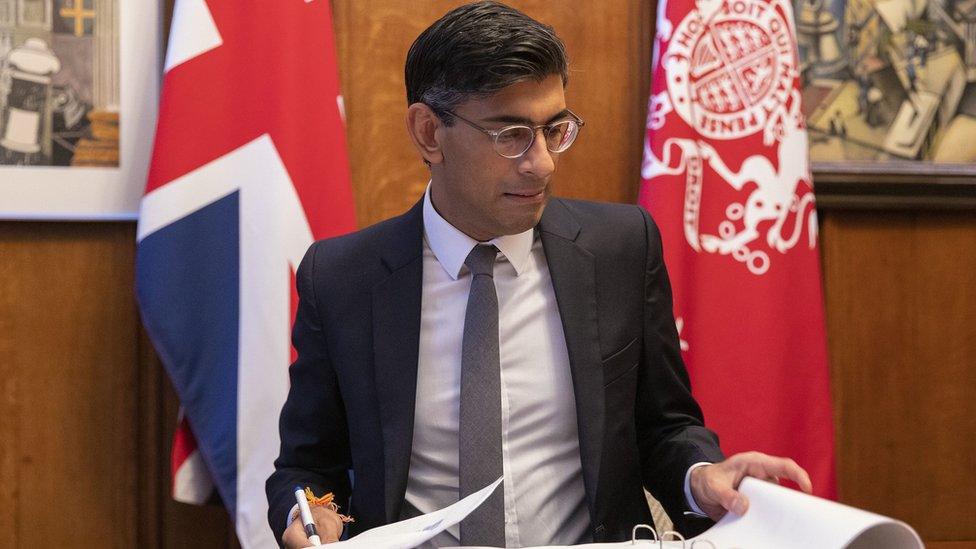Will Sunak's Budget plans calm cost of living concerns?
- Published

Taking the pre-Budget temperature of families visiting a pumpkin patch at Tulley's farm in Sussex, I was struck by just how concerned the public is with regards to rising prices and availability issues.
Everyday experiences of record petrol prices, soon-to-be record domestic energy prices, rising taxes, expectations of rising mortgage costs, and wage rises far from keeping up to pay for increased outgoings, were very strong.
While the prime minister and chancellor have predictably succumbed to the temptation to boast about the UK having the "fastest growth in the G7", there is a risk such boosterish rhetoric about the rebound from last year's record falls will struggle to match the lived reality of ordinary British families.
With this rebound has come supply and worker shortages, lingering high inflation, and the prospect of interest rate rises.
The chancellor's answer to inflationary pressures will be to show a rapid restoration of sound public finances after record borrowing, with by the end of parliament, tax revenues exceeding day to day spending - what is known as a current surplus.
But that means there is no room for tax cuts or business rates cuts. Indeed, a closer look at the seemingly huge spending announcements already made show many re-announcements, or in particular, that it is long-term investment spending on equipment or on infrastructure. This type of spending will not count against the chancellor's new targets or rules for borrowing, to be revealed at the Budget.
'New age of optimism'
Efforts to increase wages have also avoided major spending commitments. Raising the National Living Wage is mainly a burden on private sector employers and currently it is unclear just how generous, and therefore how costly, public sector pay will be when the freeze is lifted.
All this is because the chancellor wants to use this Budget as a restart and a reboot - nearly two years of spending and borrowing hundreds of billions in pandemic rescue funds is over. Now he is focussed on showing government borrowing is firmly under control.
And then, like every chancellor before him, he will say that the measures in the spending review will boost productivity and therefore skills and so bring about higher wages without generating inflation. He will use the phrase "new economy" and talk about a "new age of optimism".
This has echoes of the rhetoric heard at turn of the century, which accompanied booms stimulated by interest rates kept too low for too long. That era ended in the financial crisis of 2007-08.
Part of this new era is a better geographic spread of economic growth - what Boris Johnson calls "levelling up". The three-year spending review is showtime for what this really means. We should be able to see the receipts in Treasury black ink and measure just how "level" the country is to become.
So the chancellor has grand plans. The rescue is done. The economy needs no booster jab, he calculates, it needs sound finances and a wave of private investment to solve poor productivity in the long term. However, the public may expect help with the cost of living far more quickly than that.
- Published26 October 2021
- Published24 October 2021